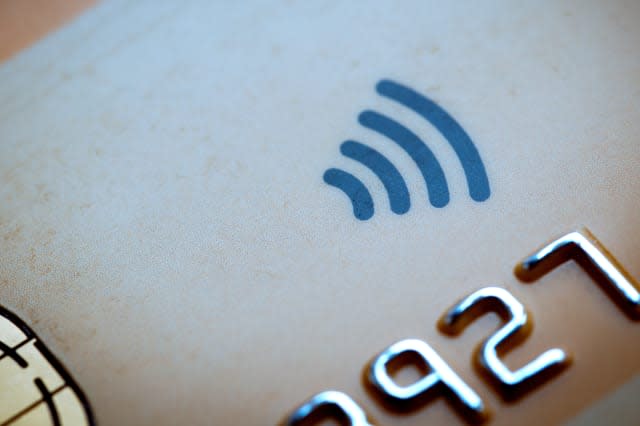Will Brits ever really trust contactless cards?

While the banking industry is predicting a big shift to contactless payments, it seems the British public is less keen.
A report from the Co-op says that almost two thirds of all transactions are still made with cash. But, it says, contactless use has trebled in the last year.
Already, one London restaurant chain is opening outlets that only take payments by plastic: Tossed has two stores fitted with self-service kiosks instead of manned tills, and will take payment only by credit or debit card, contactless and Apple Pay.
And by 2025, says the Co-op, even plastic will be obsolete, with 65% of all transactions made by mobile phone.
"We've seen incredible growth in contactless, and it is the payment medium of tomorrow, although mobiles are ringing the changes" says Cheryl Marshall, retail chief information officer at The Co-op Food.
"The new technology is perfect for convenience stores as shoppers buy fewer items and speed is important to them. Cash is still king, as people enjoy carrying money; however, we predict that by 2025 mobile payments will overtake cards and cash."
However, the research also reveals that many people are reluctant to use the service, particularly for payments over £10. While there's a £30 limit for contactless payments, the average convenience store shop costs just £8.66 when using contactless, compared with an average of £18.16 when using chip and pin.
And a separate survey from research consultancy Future Thinking reveals that almost a third of people avoid using contactless altogether, as they don't trust it; men are more sceptical than women, and older people more than the young.
In Sweden, by contrast, physical money is close to disappearing altogether, with many banks refusing to accept or give out cash. The country has its own payment system, Swish, which simply involves typing in the recipient's phone number and the amount, then hitting send. The money is transferred immediately.
However, there are serious concerns about going cashless, with charities pointing to the difficulties it could cause for the homeless and other people on low incomes.
"The demise of cash has been predicted for a long time but it remains the currency option the general public turns to for confidence, convenience and security," says a spokesperson from the Royal Mint.
"Cash is still the most prominent payment method for UK consumers, and global demand for coins is as strong as ever."





